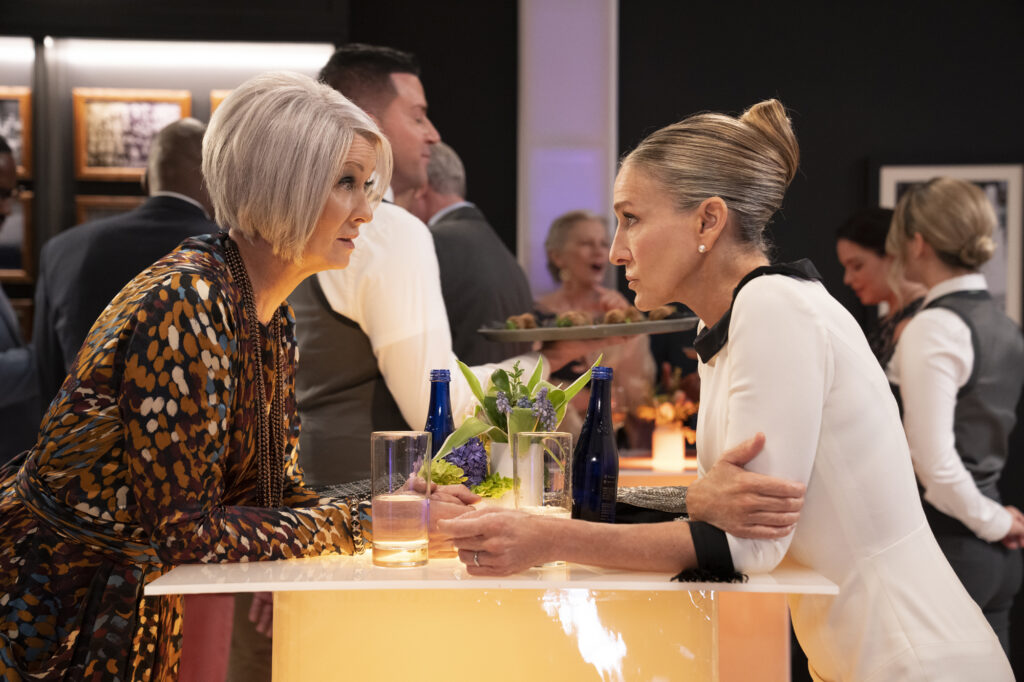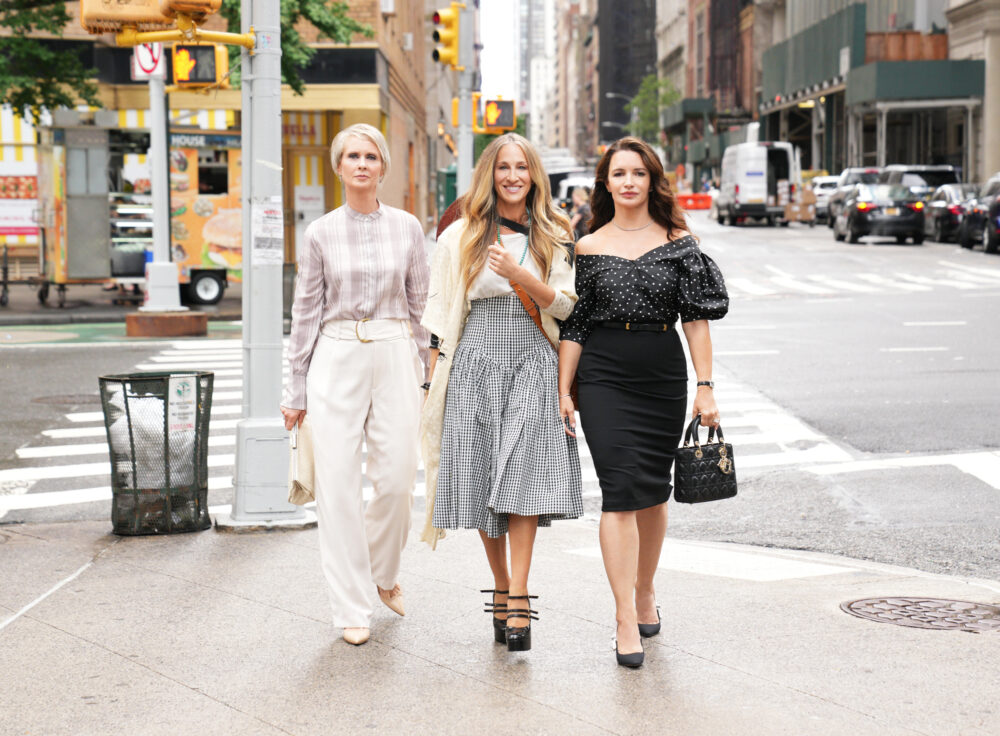If you’re after escapist TV this summer you won’t find it in the Sex and the City reboot …And Just Like That.
Each week I tune in hoping for a glamourous date with Carrie, Miranda and Charlotte but leave deflated and increasingly cross.
I can’t help but wonder … have they changed, or have I? The miserable trio on my television have very little in common with the exuberant older women I know in my own life.
The writers of And Just Like That… have plonked our protagonists into a world they struggle to navigate, as if they’ve been cryogenically frozen in the 11 intervening years since the critically-panned film Sex and the City 2. This gap in their narrative development has also deprived them of the intellectual and emotional development they should have gained during this time.
Carrie doesn’t appear to have written any new books and now pays for her Manolo’s as a participant on a dating podcast. Far from the woman who posed scantily-clad on the side of a bus and wrote confidently about sex, she’s now a meek shell of her former self. Her famously cutting one-liners to her friends seem more bitter than sarcastic.
Miranda has quit her job as a corporate lawyer, again, and enrolled at university. We find out she hates her life, can’t get her head around race politics, and has a drinking problem.
Charlotte has not returned to work as an art dealer and is somehow more insecure than ever as a wealthy stay-at-home mother to two teenagers.
It’s clear that the writers haven’t wanted to shy away from the trials of mid-life. Illness, death, addiction, parenting horrors and career cul-de-sacs are all part of the rich tapestry of middle age. Indeed, there is Australian research indicating that just prior to menopause, women’s negative mood scores and depressive symptoms are at their highest. The good news is, that post 50, negative mood scores start to reduce for each year of increasing age. Our happiness increases to such a level as we age that some researchers have described it as a ‘superpower.’
By focusing on the hard parts of mid-life, the show has destroyed what made the original series special in the first place – the glamour and excitement of four independent women, looking for love or just a good time in the Big Apple. As I said to a friend of mine – if I wanted gritty, I’d watch a Mike Leigh documentary.
Of course, the absence of Kim Cattrall’s Samantha (who always had the best lines and the most fun) doesn’t help. Her role has been replaced in part by a supporting chorus of actresses of colour.
Nicole Ari Parker brings us Lisa Todd Wexley, a documentary maker. We also meet law professor Dr Nya Wallace and real estate broker Seema Patel. All of these characters are worldly and interesting and glamourous, in contrast to Carrie and Co. They have fantastic wardrobes, are in charge of their own careers and aren’t afraid to tell it like it is.
I see this in my own circle of friends. The forty and fifty-something women I know are heading up businesses and charities – and loving it. They’re climbing mountains and taking up mountain biking or ocean swimming. They’re enjoying relationships that have hit new strides now their children are older or moving on to new partners and experiencing deeper connections than they’d ever thought possible.
This is consistent with new research on the impact online dating apps have had on the sex lives of older women, who are having more casual sex than they’ve ‘probably ever had’. Technology allows women to feel safer when searching for potential partners, and enables them to ‘take the reins’ and control the speed of the relationship. Even more curious then, that Miranda has apparently never listened to a podcast and Carrie has to have a friend set up an online dating profile for her.

Amber believes “And Just Like That” focuses on the hard parts of mid-life and ignores the fun and exciting parts. Picture: HBO
Some of my mid-life friends have mostly eschewed dating all together and are single by choice, happy in their own spaces. They’ve grown up and discovered who they are and what they want. And they certainly aren’t wearing heel-breaking stilettos like Carrie Bradshaw. Us older women save our good heels for a big night out but get around during the day – just as Sarah Jessica Parker does when not filming – in comfortable kicks.
A better portrayal of a woman in her prime was brought to us in season two of Emily in Paris. Sylvie Grateau, former head of the Paris marketing agency Savoir (played by Philippine Leroy-Beaulieu) was season one’s villain, but is fleshed out further in the second season. Blunt, intelligent and drop-dead gorgeous, she has a refreshing intolerance for Emily’s selfish antics and is more emotionally vulnerable than we first thought. Here’s a show that marries the glamour of one of the world’s most beautiful cities with high fashion and escapist, high-saccharine drama. A little bit like Sex and the City used to.
As a budding journalist, I once wanted to be Carrie Bradshaw when I grew up. But then I grew up, and realized I feel a bit sorry for who Carrie has become. It’s only halfway through the season, so I hope things soon look up for our protagonists. Mid-life isn’t a bed of roses, but it’s not a misery-fest either. And in the meantime, we still have Paris.
- Feature image: And Just Like That. Source: HBO





